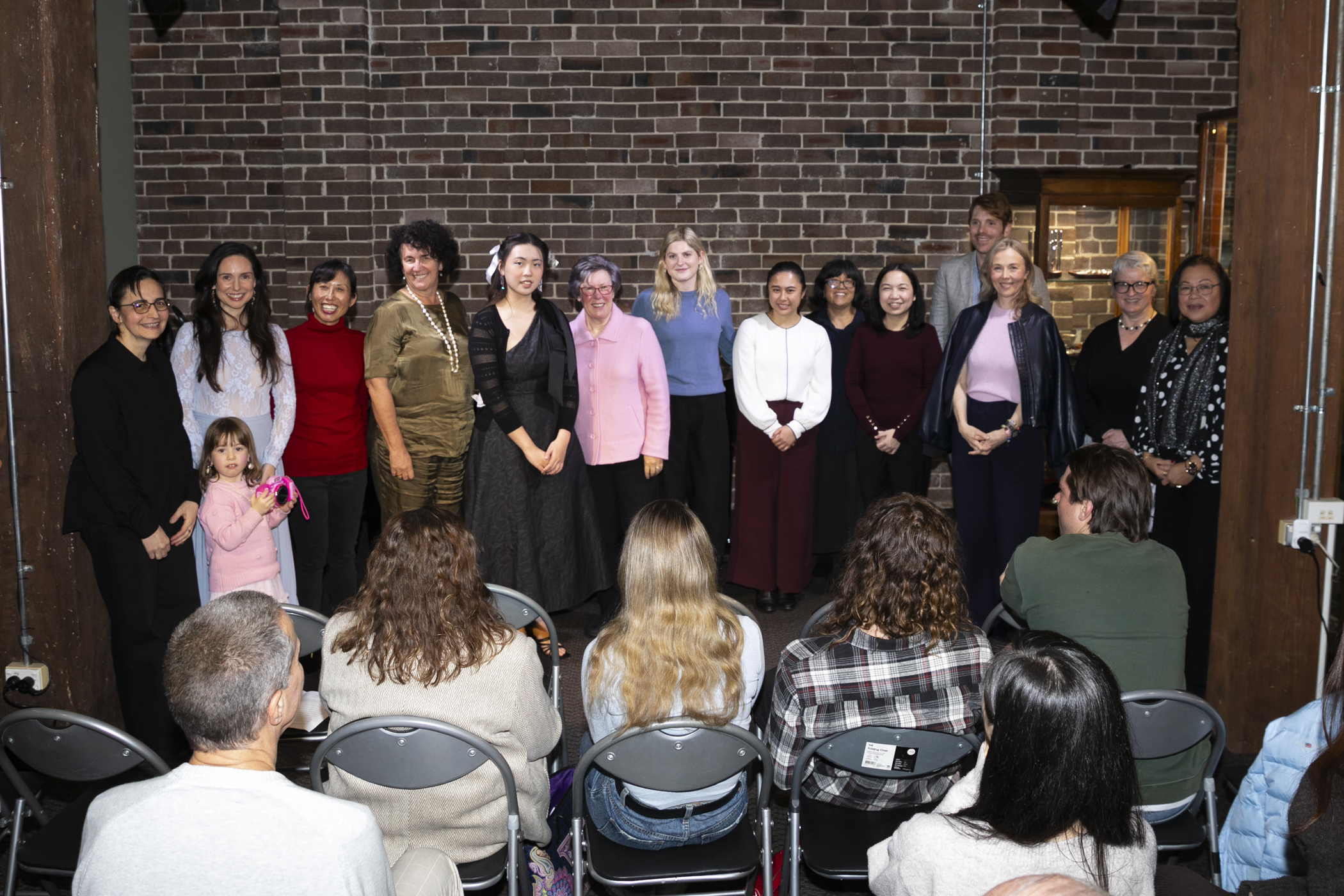To sing more freely, you need to listen less
When I recently advised one of my singers to listen less to their voice as they practice, and learn to trust the feeling of their singing technique, they asked what I mean. So, I thought I’d share my explanation.

Here’s some baby bilby ears not judging sounds 😉
As singers, we want to sound good, to be in tune. But as we learn to sing, we need to let go of the urge to listen to the sounds we make. More importantly, we need to let go of judging those sounds.
Even when a singer can sing well, I often find something is holding them back; their sound is not as free and soaring as it might be. They sound okay, but cannot access their fuller, easier and released sound. Instead, I hear a confined, apprehensive quality.
In my experience, this is because many singers anticipate that they will sing out of tune if they don’t control their sound. Over-listening is one way singers try to control sound, hoping to ensure the pitch and tuning they hear will be correct. But this can lead to them tightening their throat, mouth and tongue, which then produces a restrained sound. This habit can become so embedded, a singer is often unaware of the restraint on their vocal production.
It takes time, trust and training to manage your thoughts, your body and your sound to be as free as it can be.
Let your voice sound wobbly
There are many reasons why a singer may fear they will sing out of tune. They may recall shame, or uncertainty when their desire to sing freely was constrained in a past environment or circumstance. This fear can be overcome by learning secure breathing technique, being given the permission to open your throat and sing with joy, and make a louder noise than you have been used to.
I often encourage singers to let themselves sound wobbly or off pitch. Cracks, bumps, weird or wobbly sounds and yes, mis-pitching, are part of your learning journey. When you allow this to happen, you open your voice more and let it sing feely.
Relax your articulators and breathe deep
Singing involves a strong mind-body interplay. If there is tightness at any point along the vocal tract, your emotions will not be free to sing a melody, and express the words, character, or story.
When you clench, even if only slightly, the mouth, soft palate and throat, you create too many vibrations through the nose, making the sound thin and whining. If your throat is tight, your in breath will be shallow, giving your voice a feeling of urgency. A tight jaw produces a closed, unreleased sound. Learning to relax the jaw and let it hang on the in breath takes trust, confidence in your inner ear’s ability to find the correct pitch, and a knowledge that a low breath will then support the air flow for a calm, open, composed sound.

Alex and Alison from our 2024 Studio Concert
Singing requires hearing, feeling – and thinking
Some singers are more sensitive to the sound they hear, while others are sensitive to how and where singing is felt in the body. It is likely the two work so closely together that learning to separate and work on both your hearing feedback and your feeling feedback is the best approach. Learning to sing actually engages all your senses and most importantly, all your powers of attention.
Even the time of your singing lesson influences your sound, and your cognitive receptiveness to training. While an evening lesson might suit your work schedule, an occasional morning or early afternoon lesson is better, as your cognitive and physical states are fresher and ready. If you feel cognitively and physically tired after a singing lesson, you’re doing well!
Your mood can impact how you sound, too. You might notice when you’re in good spirits your voice sounds more open, and your breath will drop deeply into your low torso, helping you feel secure and grounded. But if you’re anxious or tired, the free feeling in your sound can be blocked.
Look after your hearing

Photo by Hayes Potter from Unsplash
Although we’ve talked about listening less, it’s worthwhile remembering to look after your hearing as you continue to learn singing. Listening to and performing music at high intensity can cause cumulative hearing loss for musicians. Once your hearing is gone, you can’t get it back. Consider wearing earplugs – even custom-made musician earplugs, especially if you perform with loud instruments. Take breaks, with enforced silence to allow for the effects of any acoustic trauma to settle down.
Singing is a whole-body activity, engaging brain, body and voice. By allowing yourself to relax and trust, you create an openness of attitude which in time, can be heard in your voice.
Kathleen Connell provides a safe, encouraging space to explore your voice. Find an in-person or online singing package to suit you, or call 0402 409 106.




